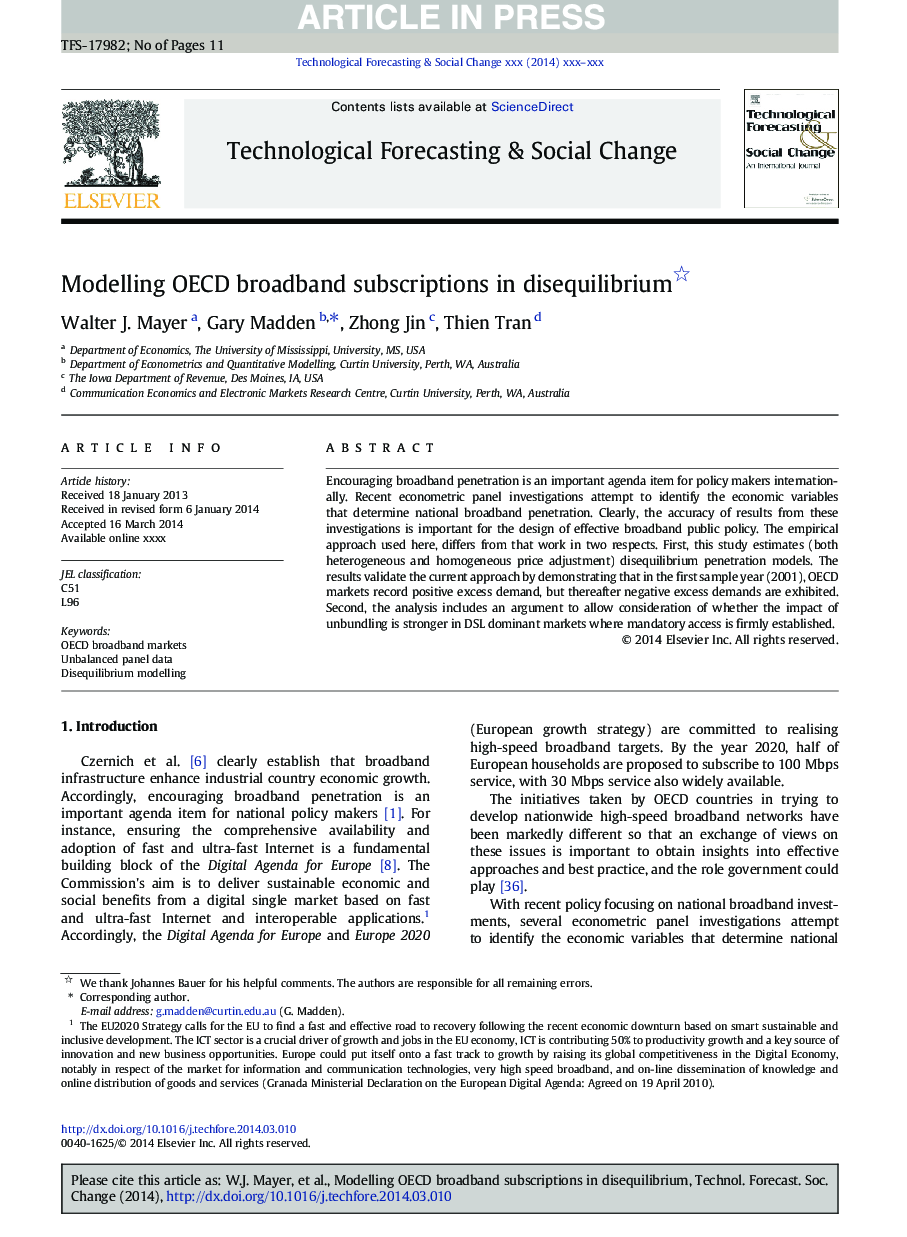| Article ID | Journal | Published Year | Pages | File Type |
|---|---|---|---|---|
| 7256929 | Technological Forecasting and Social Change | 2015 | 11 Pages |
Abstract
Encouraging broadband penetration is an important agenda item for policy makers internationally. Recent econometric panel investigations attempt to identify the economic variables that determine national broadband penetration. Clearly, the accuracy of results from these investigations is important for the design of effective broadband public policy. The empirical approach used here, differs from that work in two respects. First, this study estimates (both heterogeneous and homogeneous price adjustment) disequilibrium penetration models. The results validate the current approach by demonstrating that in the first sample year (2001), OECD markets record positive excess demand, but thereafter negative excess demands are exhibited. Second, the analysis includes an argument to allow consideration of whether the impact of unbundling is stronger in DSL dominant markets where mandatory access is firmly established.
Keywords
Related Topics
Social Sciences and Humanities
Business, Management and Accounting
Business and International Management
Authors
Walter J. Mayer, Gary Madden, Zhong Jin, Thien Tran,
